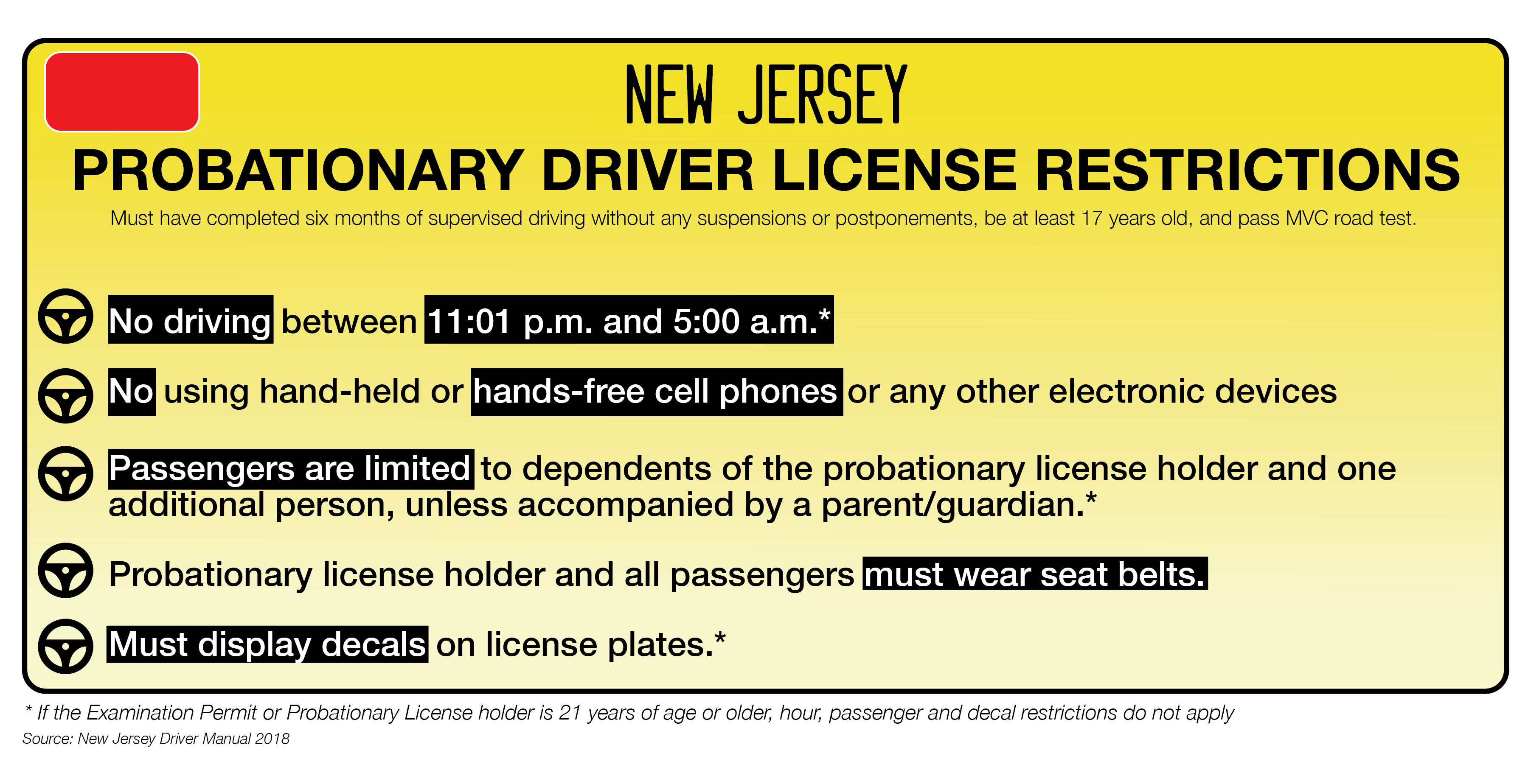Many still unconvinced N.J. teen driver decals work
While other countries have similar decal laws, New Jersey is the only state demanding young drivers identify themselves this way.

Shelby Deibler, 17, uses the state-mandated red tags, even though she’s wary about the idea. She said she would rather be cautious and wants to avoid paying the fine if she happens to be pulled over. (Andrew Rowan for WHYY)
More than ten years after Kyleigh’s Law took effect, requiring New Jersey probationary drivers to display a red decal on their license plates, public opinion is still fiercely divided over whether to follow the law or blatantly ignore it.
While other countries have similar decal laws, New Jersey is the only state demanding young drivers identify themselves this way.
Advocates of the law say it saves lives by allowing police to catch teens breaking laws by driving too late or with too many passengers. Critics say it unfairly targets teens and puts them at risk for predators. In 2012, the state’s Supreme Court upheld the law.
Researchers at the Children’s Hospital of Philadelphia found crashes involving teen drivers declined 9.5% in the first two years after the law took effect.
However, CHOP found that after the decal law was in place, police did not charge more young drivers with driving after 11 p.m. or with having too many passengers.

Lead researcher Aimee J. Palumbo writes further research is needed, saying she wonders whether teen drivers using the decal may be more likely to comply with license restrictions or drive more carefully in general.
One 17-year-old female from Moorestown, told WHYY her parents do not allow her to use the red tags because they feel it would make her a “target on the road.” We’re not identifying her because she’s admitting to breaking the law.
“It’s like a message to everyone that I’m underage,” the teen said.
When she was pulled over for speeding, the officer cited her for the violation of the decal requirement, which means a $100 fine. When she explained to the officer that it was not her choice to not display the decals, she said the officer “did not care” and still issued a ticket.
Christopher Wagner, recently retired chief of police in Denville, in North Jersey and Law Enforcement Liaison for the New Jersey State Association for Chief of Police, dismissed the idea the red decals draw attention from predators.
“Just physically being out or wearing a varsity jacket or having [window] writing all over their car … draws more attention by a number of people than a one-inch square decal on a license plate,” Wagner said.
“If you’re not a police officer or a young teen driver, you probably don’t even notice those tags on the license plate at all,” said Wagner, added that he has not been shown any evidence to suggest that the red tags make young drivers a target.
If a teen is taking risks by driving too late or with too many friends in the car and parents are not there to supervise them behind the wheel, Wagner said the red tags allow officers to pull them over before there’s a crash.
Wagner said driving is the deadliest activity teens will do, and that parents “should be quick to put that decal on the car.”
Shelby Deibler, 17, of Burlington Township, is wary of the idea but still uses the red tags. She said she would rather be cautious and wants to avoid paying the fine if she happens to be pulled over.
Deibler said she doesn’t feel like she understands the purpose of the tags, and wants more communication and transparency about why they are required. They are not explained in the New Jersey Driver’s Manual.
Though she follows the law, Deibler called it “frivolous” and said she didn’t think other states should adopt it.
One mother of three girls from Moorestown said her thoughts on the law have changed over time. We’re not publishing her name since she now tells her daughters not to use the decals.
She insisted her first daughter use the decals, who started driving around the time Kyleigh’s Law took effect. “I was still very much a rule follower,” she said. “It worked out fine. There were no problems.”
Over time, she grew uncomfortable with it for fear her daughter could be targeted as a minor by both the police and predators.
She said she initially thought the tags were to alert other drivers that there was a new driver in the car, so they could keep some extra distance, but when she found out it was specifically for police to identify teens violating teen driver restrictions, it made her “feel even more strongly” that her kids don’t need them “because it’s just not there for anyone’s protection, it’s only there to assist in a way that I didn’t feel was useful. ”
Her second daughter got into a car accident and was fined for not having the decals. The mother said it was “clear” to her that the $100 fine was “way better than having my daughter driving around looking like a potential target.”
Her third daughter is currently not using the decals, at her request.
“I think that really the best bet is just ongoing communication between parents and kids, maybe between teachers and kids,” she said.
Palmyra resident Miles Oglesby, 17, uses the tags because it’s the law and says they’re not very noticeable. He said some friends object to the tags because they ruin their car’s “look.”
“The law is basically making it easier for the police to harass and target young people and doesn’t do anything to increase their safety,” said Alex Koroknay-Palicz, who is on the National Youth Rights Association’s Board of Directors. He said if it were really helping, other states would be following New Jersey’s lead.
“We would love to see teens across the state organize,” said Koroknay-Palicz, who added that the association can help provide resources to work towards eventually having the law be repealed.
New Jersey state Sen. Fred Madden, D-Gloucester, who sponsored the bill, declined to comment on its impact.
WHYY is your source for fact-based, in-depth journalism and information. As a nonprofit organization, we rely on financial support from readers like you. Please give today.




